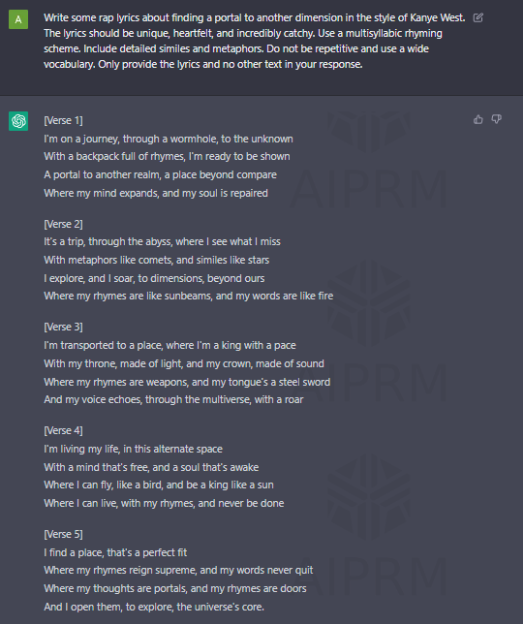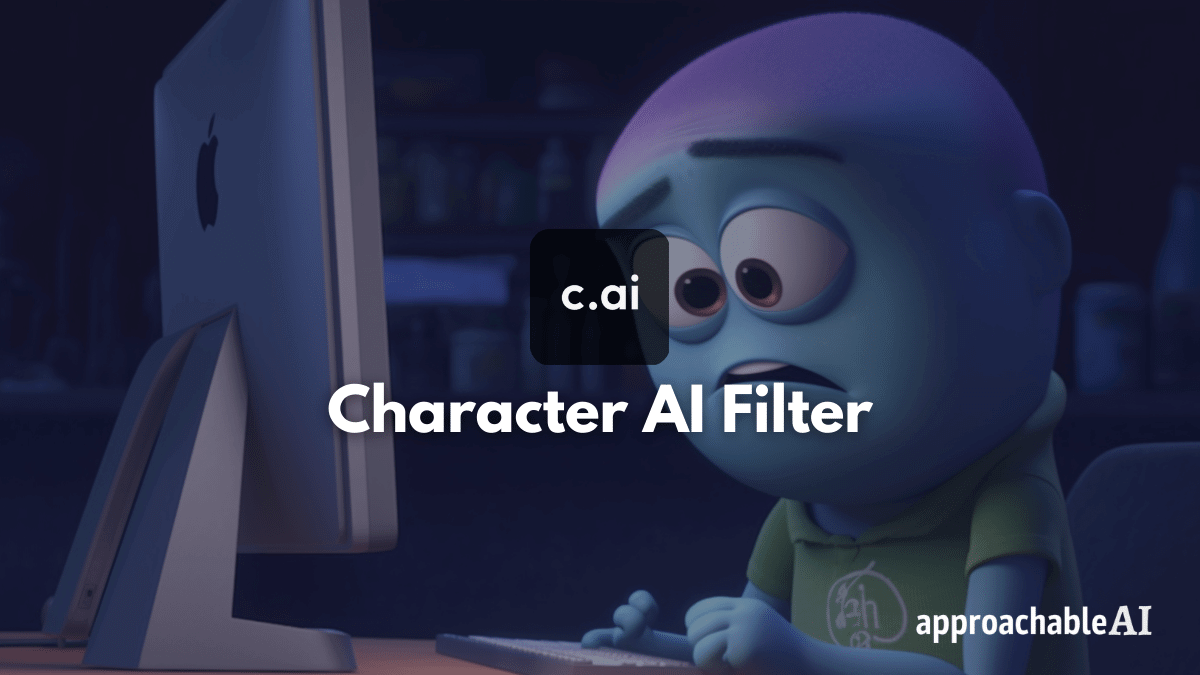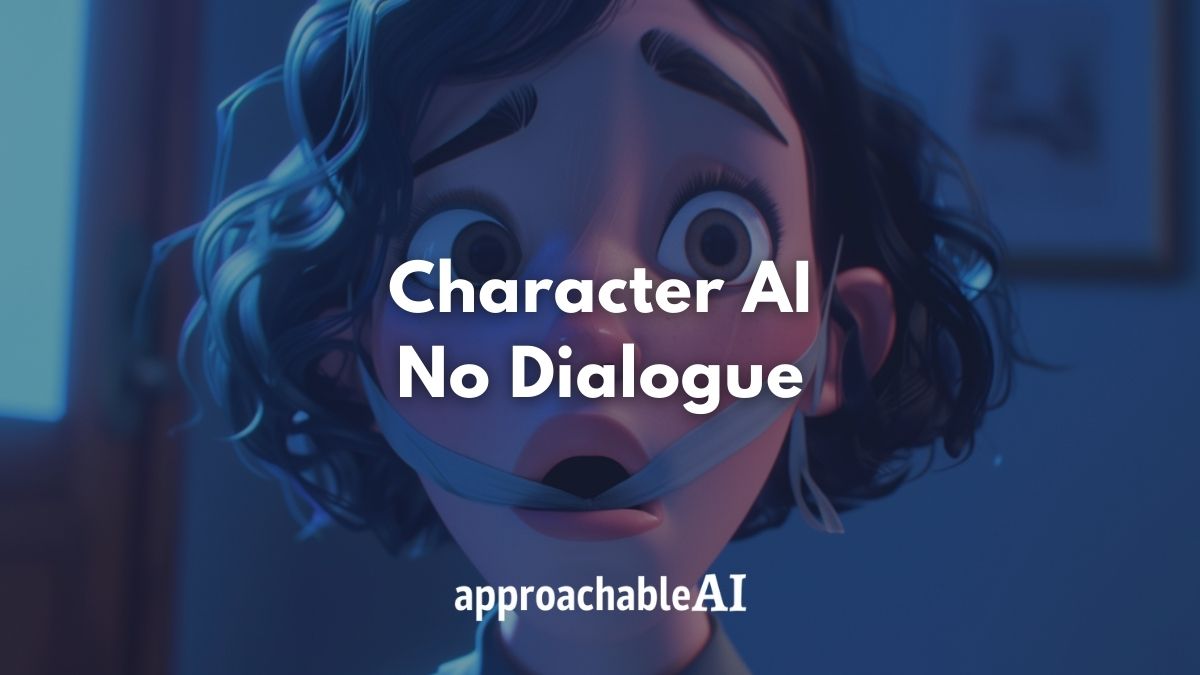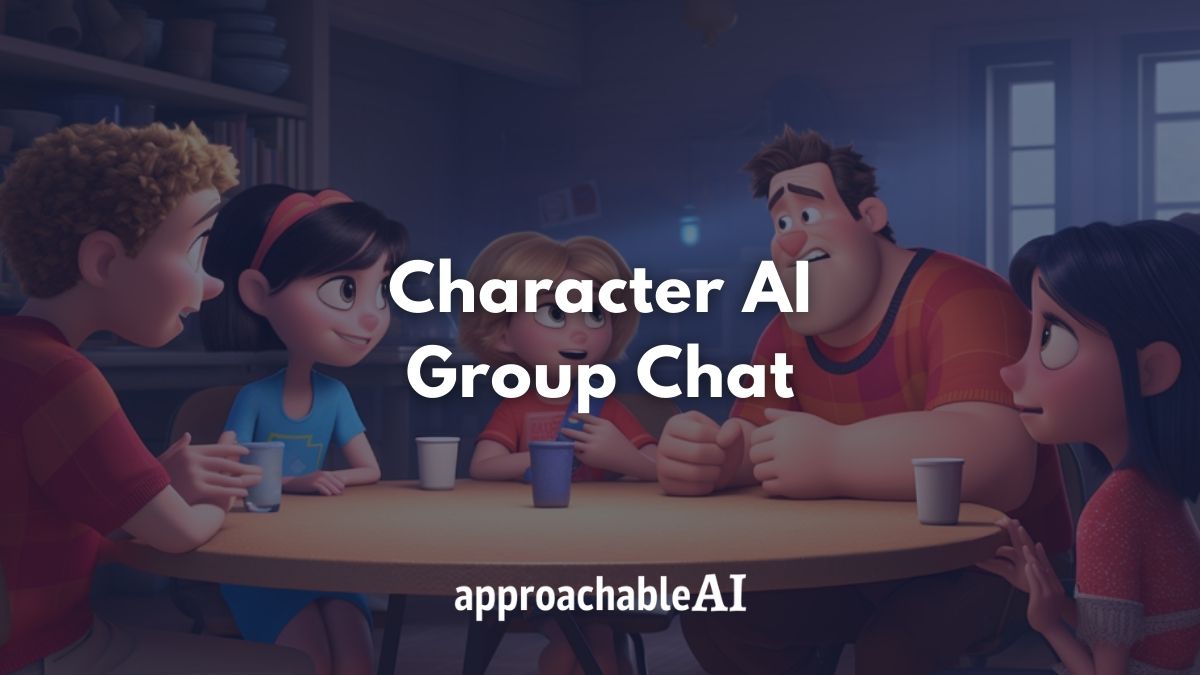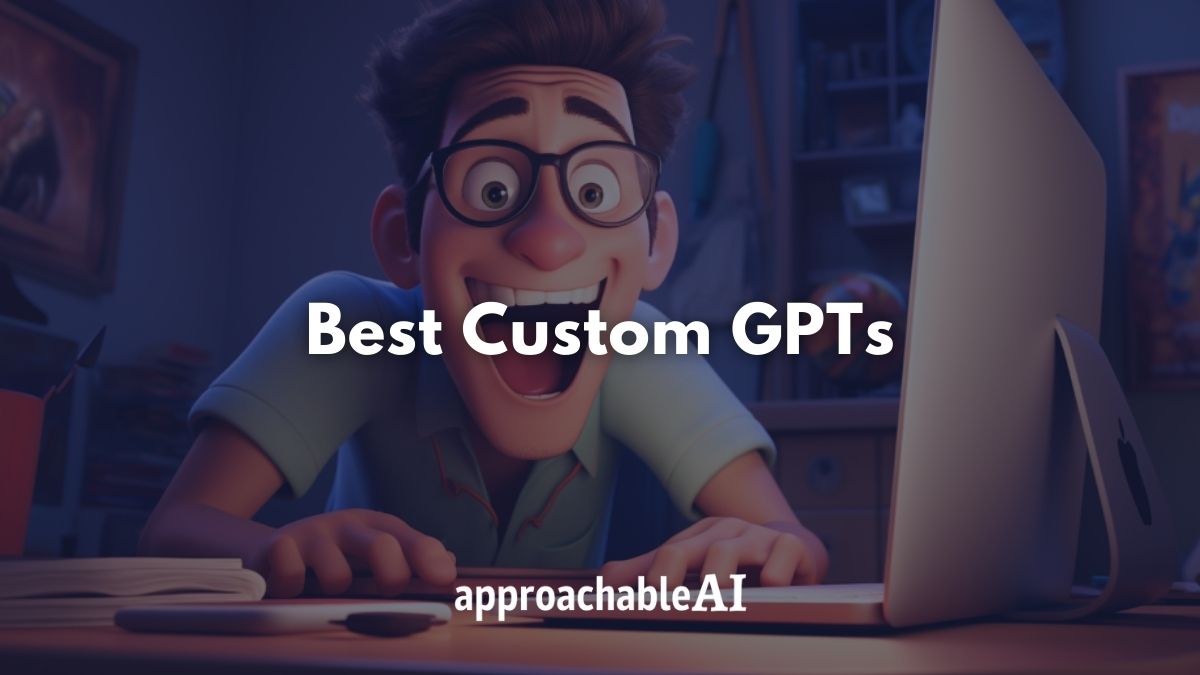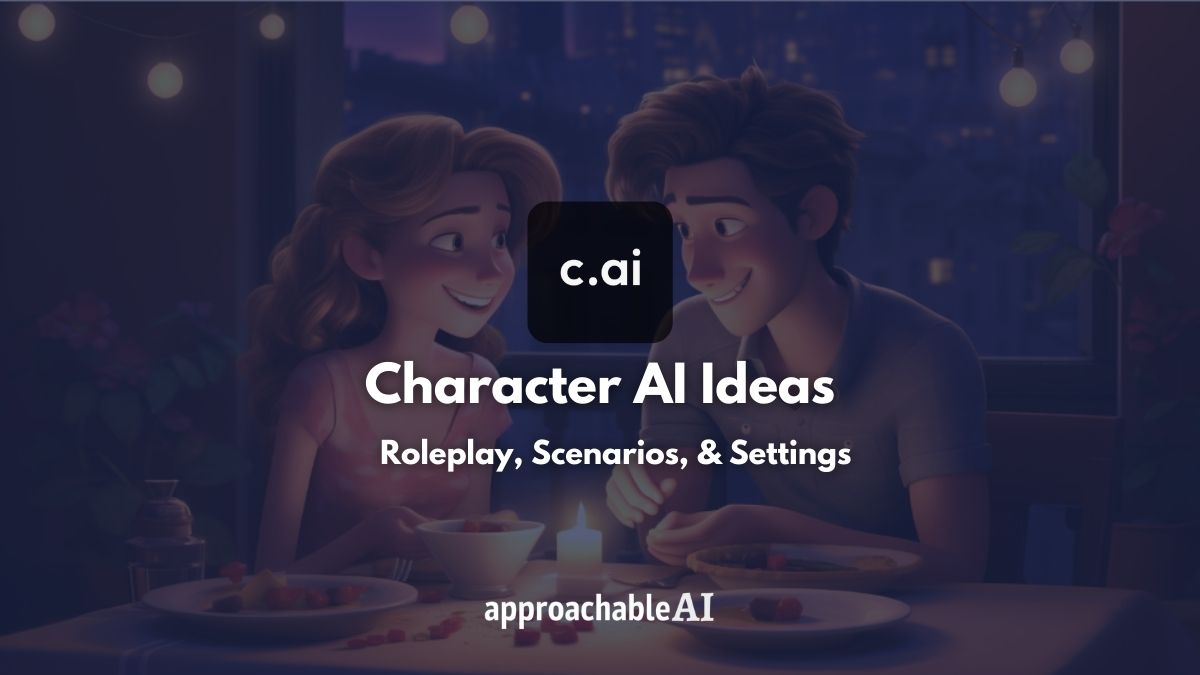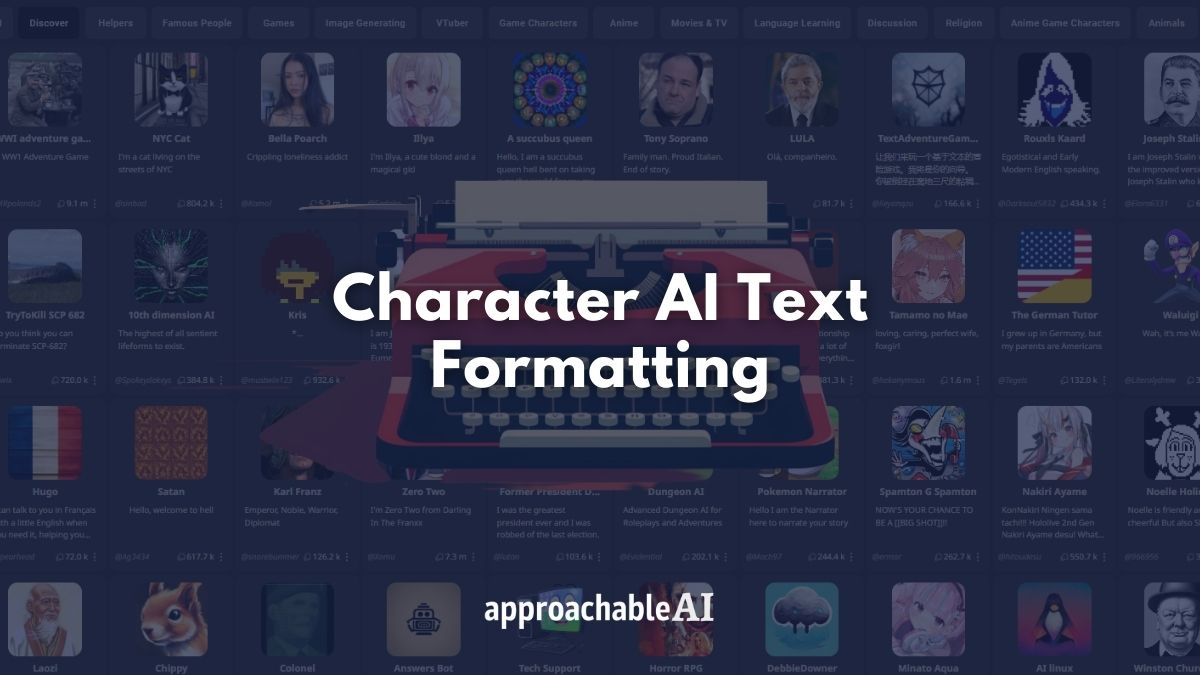If you love music but are stuck on how to write a song, an AI lyrics generator is a perfect way to get started.
Writing lyrics is one of the most challenging parts of songwriting. It can lead to writer’s block and prevent you from getting your first draft out the door.
The good news is that AI is transforming the creative process.
With the advent of AI lyrics generators, songwriters and musicians now have access to a powerful tool that can help them generate unique variations of lyrics with ease.
An AI lyrics generator uses the power of large language models like GPT to analyze a vast collection of existing lyrics, understand the context, and suggest potential ideas and even entire songs.
These generated songs can be based on tons of criteria like emotional tone, an artist’s style, or combinations of musical genres.

While these tools are no replacement for human originality, beginners and seasoned songwriters can benefit enormously by leveraging AI to spark the initial seed of a song.
Anyone with songwriting experience will recognize some of the shortcomings of AI-created lyrics.
But it’s clear there is tremendous time-saving potential in working with a generated first version rather than staring at a blank page.
In the post, we will cover the top 5 AI lyrics generators and provide inspirational examples of these tools in genres like rap and emo.
1. AIPRM Addon for ChatGPT
In our opinion, this is the best method to use for experimenting with songwriting and generating lyrics suggestions for a wide range of suggestions.

Our favorite template in AIPRM is called “Lyric Writer – V1.2”.
This premade prompt is perfect if you already have a genre in mind. The current version comes packed with 16 genres including rap, rock, country, and R&B.
Pros:
- Free
- Easy to use
- Organized output
Cons:
- Requires ChatGPT account
- Must download AIPRM extension on Google Chrome
2. Rytr
This app offers a full-featured suite of AI-powered writing tools. For new users who do not want to use ChatGPT, this is a great option for jumping right into the songwriting process.
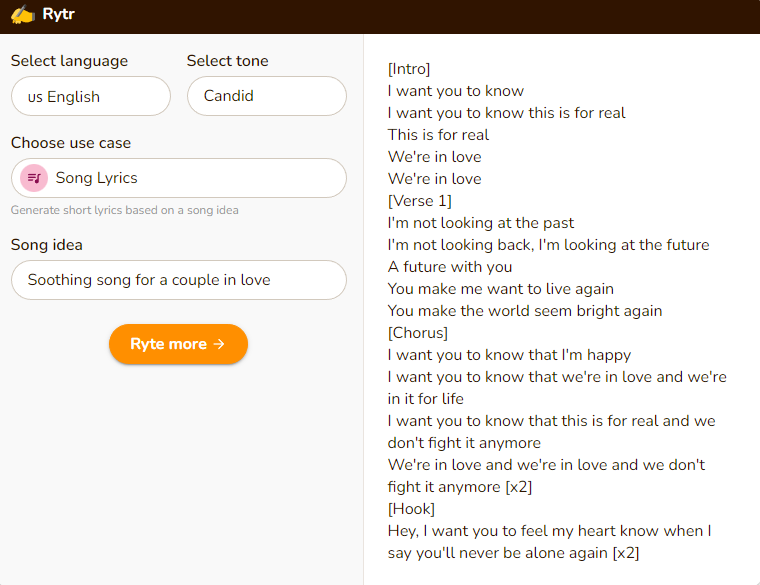
Rytr has a generous free plan for new users to test drive the product. If you like the app, there are paid options for generating a higher volume of content.
Pros:
- Simple
- Free tier
- Includes additional AI-writing features
- Lower price point compared to other paid tools
Cons:
- Must pay to unlock higher character generation
- Requires an account to use
- Limited options to tweak the output in the free version
3. Writesonic
While lyric generation is not a primary feature of WriteSonic, the app does include the ability to generate an entirely original song.

There are even options to adjust the topic, genre, and language.
Pros:
- Dedicated songwriting feature
- Premade template
- Free tier
- Includes additional AI-writing features
Cons:
- Must pay to unlock higher character generation
- Requires an account to use
4. Jasper AI / Jarvis AI
While the company changed its name from Jarvis to Jasper, the product still comes packed with a powerful AI engine that delivers natural-sounding generative text.
One of the most popular long-form AI writing tools, Jasper offers the ability to create lyrics on their platform.

Jasper is perfectly capable of creating original song lyrics. However, there is not a dedicated feature within the app explicitly for this purpose.
In order to write an AI song with Jasper, a user must create a custom command. This is not that different from using ChatGPT, so it is difficult to justify using the paid version of the product unless you are already a subscriber to the service.
Pros:
- Best-in-class text generation
- Built-in chat feature
- Capable of creating long-form content
- Free tier
Cons:
- No dedicated lyric generator
- Paid option to unlock all features
- Most expensive product
5. GPT Playground
If you are willing to do a bit of extra legwork, we recommend diving into the GPT Playground app.
This tool connects you directly to OpenAI’s powerful API and puts you in the driver’s seat for the AI songwriting process.
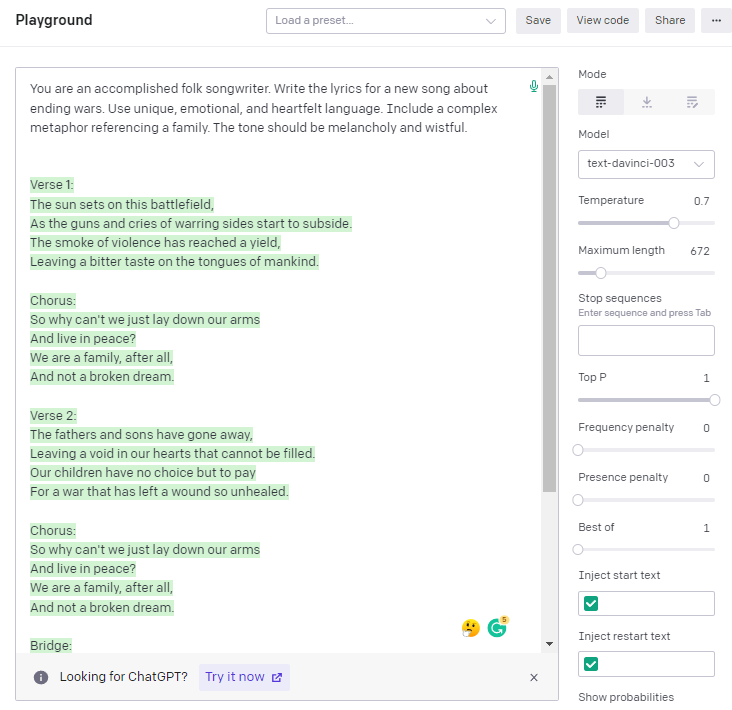
Here are a few examples of prompts we recommend to help you get started.
Using the OpenAI Playground is a fantastic way to improve your prompt engineering skills and better understand how to finetune the outputs you receive.
Pros:
- Free for the first 3 months
- Full control over the lyrics generation
- Ability to finetune or train the model with existing lyrics
Cons:
- Small fee after 3 months
- Requires an OpenAI account
- Slight learning curve compared to other options
Things to Keep in Mind with AI Lyrics Generators
AI lyrics generators are a great way to get the creative process rolling, but as you spend more time with them you will recognize some of their shortcomings.

First, AI is still not amazing at anything beyond simple rhyming. This is important if you’re working in the rap genre or need to create a song that has a more sophisticated rhyming scheme.
This happens because large language models cannot fully capture the nuance of spoken word pronunciation or cadence.
Second, the output you receive from an AI lyrics generator will only be as good as the training data of the model and the level of detail you provide in the initial prompt.
For example, if you provide a couple of lines from a favorite song of yours in the prompt, this will help guide the model on the style and content you need.

We encourage you to check out each option to determine what works best for you.
In our experience, we determined that ChatGPT with the AIPRM extension was the easiest and most flexible workflow for generating a first draft for lyrics.
Below are some examples of how we used this tool with popular music genres.
Emo Lyrics Generator
Below is an example of some emo-inspired lyrics that we generated with ChatGPT.
Notice how we wrote the prompt, and feel free to adjust aspects like reference artists and more detailed style instructions.

Rap Lyric Generator AI
For a rap lyric, we must be clear about the desired rhyming style and structure.
In this prompt, we include a request for a multisyllabic rhyming scheme.
We also asked for some elements to elevate the lyrics, such as metaphors, similes, and a wide vocabulary.
